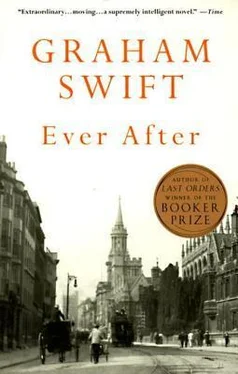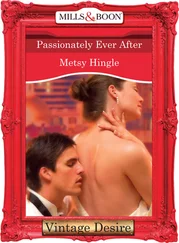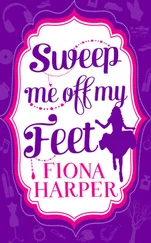We are prepared, therefore, to find that in time also the confines of the Universe lie beyond mortal ken. …
A simple matter. All I had to do was wander the premises. The History section was a good bet. I would happen upon her, as if by chance. We were, after all, half introduced. I would whisper, in this place meant for whispering, that perhaps, if she could spare a moment from her studies, a cup of coffee … Better still, a bite of lunch … Over coffee, or lunch, I would venture a disclosure or two (why not?) about the Pearce manuscripts. She would say (let it go, let it pass) how much she had admired Ruth. Then, at a certain point, with the deft timing of a practised intriguer and wooer of women, I would produce the bottle of perfume: “I think this is yours.…”
It didn’t happen, of course. That is, I didn’t find her. So how do I know, if I didn’t find her, that—?
(But how could it have happened?)
A library is equipped so that any book within it may be located precisely; but people — that is a random matter. And, of course, in so vast a complex as our University Library, it would be perfectly possible for two people, wandering independently along different routes, to elude each other for ever. I toured the building. I patrolled the corridors. I peeped along shelves and at the hunched forms at rows of desks.
A mad aberration induced by my having survived my ride with Potter? (He could really have done it.) A portent of things to come? This other life; these leases of life.
January and May.
I loitered on stairs and by the populous Main Catalogue. At the exodus for lunch I lingered by the main entrance, sun streaming through the tall doors. Gabriella. A name like a flower. And from Verona. Balconied city of love. The name was inseparable in my mind from something dark-haired, dark-eyed and slender. I couldn’t imagine a blonde called Gabriella. I couldn’t imagine Katherine being called Gabriella.
When I returned to my college room I still possessed the little bottle. I put it on one of the glass shelves in my bathroom. It is still there now, a source of perpetual speculation, I imagine, to Mrs Docherty, who cleans for me. But then its curiosity value has been far surpassed by other, recent events. It was Mrs Docherty, after all, accompanied by a porter, who “found” me. In the “old days,” she has since comfortingly told me, college cleaners were regularly stumbling upon suicidal inmates. There is something about this contemplative life. But she herself had never had the misfortune …
I could have thrown it away. But then it was not my property to dispose of, and in theory the opportunity might still have arisen to return it to its rightful owner. Though, had I done so, it’s true, the little bottle might by then have lost its strategic charge, the aura of cunning gallantry that it had possessed for a few, fond hours on a bright spring morning. So it stayed on the shelf.
It was on that May afternoon — only two months ago — as I put the perfume on the shelf — a gathering rain-cloud was squeezing the last rays of the sun over the college rooftops and onto the tiles of my bathroom — that I realised with sudden acuteness how little trace there was of anything feminine, let alone of Ruth, in these new rooms I inhabit. I had brought my two favourite photographs, one or two other things, that’s all. Besides John Pearce’s clock. A sort of self-denying instinct had made me not wish to embarrass others, or myself in front of others, with too many icons of remembrance.
And perhaps I clung to the illusion that I would go back. These rooms were only a temporary expedient, therefore deserving a sort of Spartan, bachelorly restraint (how many Fellows before me? How many muttering old fools?) When the lawyers and accountants had sorted things out, when this short-term shelter, courtesy of Ellison Plastics, had served its turn, then I would go back — to my former life. Like some soldier completing a tour of duty, I would return home. It would all be as it was.
I would never go back. This is what I realised, standing in front of the mirror. I was in my place now. A place which wasn’t my place. I was institutionalised. I had been in it for nearly a year. This was where I was.
In the roseate light of the bathroom I unscrewed the cap and once more lifted the bottle to my nostrils. He really meant to— A young girl’s perfume. I sniffed its little released world. Then I put it back on the shelf.
And how do I know? And why should I believe it?
The College notepaper is a godsend. A tasteful ivory, with the College crest lightly embossed in blue, top centre, and (only available to such as me) the words “Senior Combination Room,” for extra swank, in Roman capitals, top right corner. The sort of notepaper that must surely command respect and compel an answer, even as it is evasively passed, as I’m sure it will be, from desktop to prevaricating desktop in the warrens of Whitehall.
I haven’t a clue whom I should write to. I don’t know if there exists, in the bowels of officialdom, any functionary appointed to deal with inquiries like mine. But who am I to turn to, a poor orphan, committed to the (temporary) fosterage of this goodly college?
And the College motto (embossed scroll under the crest) is auspicious and encouraging, not to say downright optimistic: Qui quaerit, invenit .
So I compose a “Dear Sir” letter, imagining, as occasionally we all do, that this “dear sir” really exists — a seasoned, ashen-haired figure, authoritative but kindly, long-suffering but fair-minded, on whom there presses the weight of many a more onerous matter, yet who is moved, as is only proper, as is only right, to give our particular little plea his heartfelt and painstaking attention.
Dear Sir,
I am writing with reference to my late father, Colonel Philip Alexander Unwin, DSO, MC, formerly of the Hampshire Regiment, subsequently seconded to extra-regimental duties, who died by his own hand on 8th April 1946, in Paris, while on attachment to or in the full employ of the diplomatic service.
At the time of his death, my mother, Sylvia Jane Unwin, and I were temporarily resident in Paris with my father. I was nine years old and an only child.
My age naturally restricted my acquaintance with the facts. However, it has never been a secret to me that my father died by suicide and that his death occurred (by gunshot) during working hours in the office where he pursued his duties in Paris. This I believe to have been in an annexe of the then British diplomatic mission in the Rue St. Dominique. I assume the matter to have been filed in the appropriate records.
On the authority of my mother, together with the findings of the inquest, I have always accepted that the motives for my father’s death, in so far as they could be scrutinized, were personal, if never wholly clear. However, following my mother’s death, eight months ago, information has come into my possession which prompts me to reconsider the matter.
I do not anticipate that official records, such as they are, will necessarily assist in a question of private concern. However, any further light you may be able to shed on the circumstances in which my father died would be greatly appreciated.…
The language that we use! The postures we adopt! A little ingratiating mimicry of those whom (we think) we are dealing with? Or is this stuff me ? — the professorial blather (the infection well advanced); the palpable signs of fogeydom. No, not the moody Prince all along, but prating Polonius. Three “howevers” and an “in so far as.” The craven guff into which we slide in order to settle the most intimate facts of our lives. “Information has come into my possession.” Well, yes — and no. And “personal”—his motives for suicide “were personal.” What the hell else should they have been?
Читать дальше












